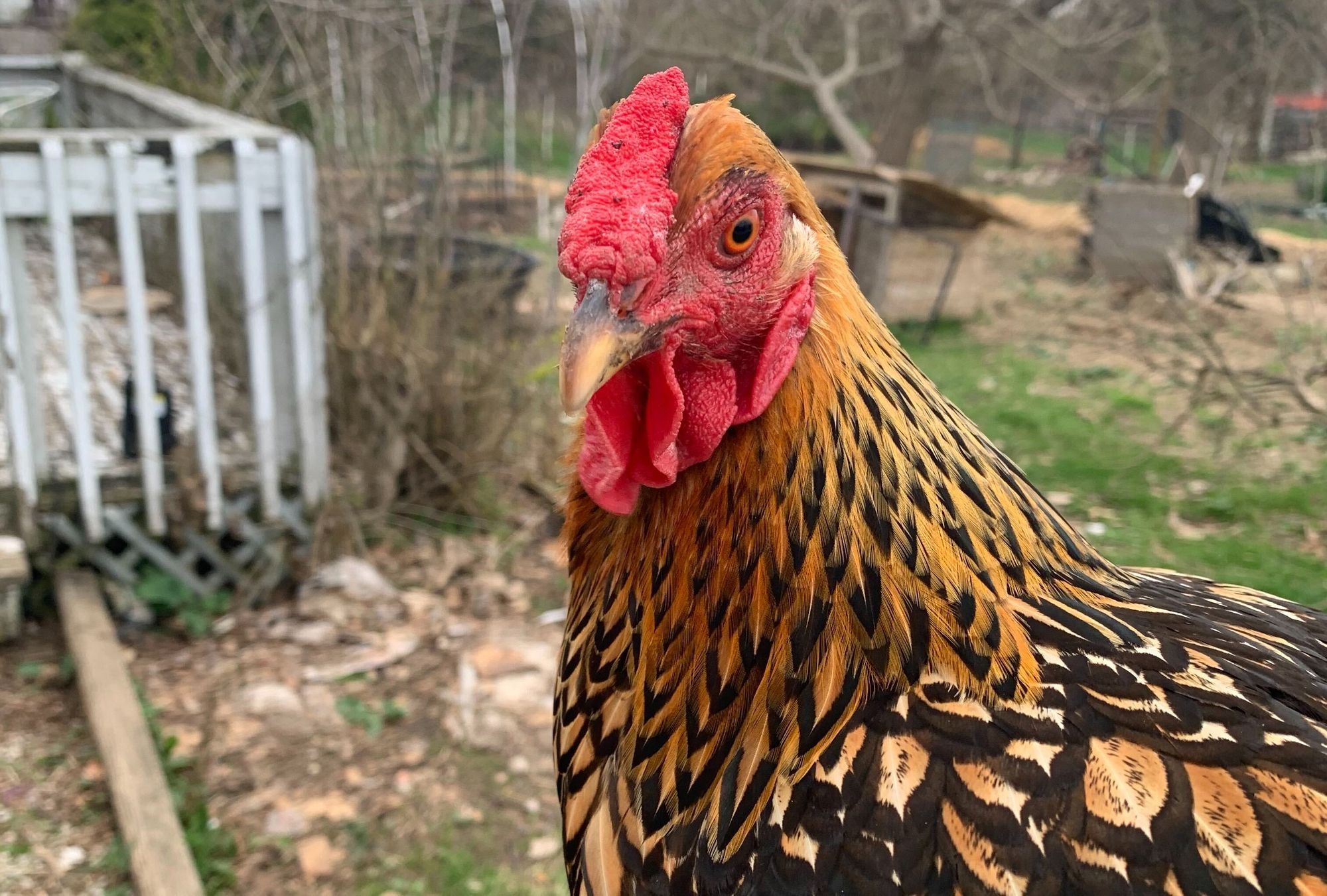Self Care: a Geek's Perspective
Self care doesn't seem to be well understood outside of certain circles these days. My hope with this article is to arm you to take better care of yourself - a skill whose importance has come into sharp relief in the current pandemic.

If you had told 20-year-old me that I would write an article on self care, I would have asked you "... what's self care?" because I don't think the term was commonly understood back in the heady days of the early 2000s. And, to be honest, it doesn't seem to be well understood outside of certain circles even today. My hope with this article is to arm you to take better care of yourself - a skill whose importance has come into sharp relief in the current pandemic.
Let's start by looking at what self care is and what it isn't, and go from there.
Self care: a definition
For the purposes of this article I'm going to define self-care as "the intentional engaging in activities that rejuvenate your emotional and cognitive energies".
Let's start at the end and talk about "emotional and cognitive energies".
I had to read "Thinking, Fast and Slow" by Daniel Kahneman twice in order to understand some of the basic findings of his research. It's a fantastic book, but super rich. One of the concepts talked about in the book is "ego depletion", a phenomenon wherein your ability to perform cognitive tasks declines as you use it throughout the day, to be replenished by sleep. For example, if you are trying to avoid sweets and are using willpower to do so, you are much more likely to succumb to a slice of cake after a grueling academic exam than before. The exam takes a lot of energy, so the reserves your willpower draws on have dwindled by the time you encounter the cake.
You might also be more likely to lose your temper at home after a long, stressful day at work. Or you might impulse-buy something unwisely. Or fib a little on your taxes. There are myriad examples of this phenomenon, and you've probably noticed something similar in your own life.
We experience these effects because the amount of energy at our disposal to gracefully deal with stress is finite. You only get a certain amount per day. The good news is that you can replenish that energy with activities such as sleeping, or engaging in self care.
In one study, Kahneman evaluated the decisions of a panel of judges who made parole decisions. The "safe" (i.e. " least stressful") decision for a parole board is to deny parole, and Kahneman noticed that the longer the judges engaged in the activity, the more likely they were to deny parole. After breaks, such as lunch or tea, paroles were granted at a much higher rate, and declined until the next break. In this case, meals and breaks were an example of self care.
Now let's fill out the rest of the definition:
Self care is intentional. It's time taken away from your "normal" activities; time you set aside for yourself.
Self care is an activity. It's a discrete set of motions; it has a beginning, a middle, and an end.
Self care rejuvenates. You feel better afterward than you did before.
Self care: the morality
Before I understood self care I thought of it as self indulgence. Taking time away for myself felt gross and selfish. "How could that be moral," I would ask myself, "when all my life I've been taught to consider others before myself?"
The answer is simple: self care puts you in a better position to live according to your values.
If you've ever flown on a commercial airplane, you've endured the "safety demonstration", where the flight attendant talks about seatbelts and emergency exits, and then goes over the panic-inducing "masks popping down from the ceiling". If that happens, that means THERE'S A HOLE IN THE PLANE. If you've also seen the movie/documentary "Fight Club" you might remember the scene where Tyler Durden says the masks "get you high" and calm you down, because a plane full of "docile" passengers is easier to control than panicked ones.
Well, this may shock you (it shouldn't), but Tyler Durden is completely wrong.
The purpose of the masks is to keep you from experiencing an inconvenient malady called "brain death by hypoxia". There is very little oxygen at the altitudes flown by commercial planes, and when humans are exposed to that little oxygen they experience hypoxia (too little oxygen), which can quickly diminish cognition. As little as 10 seconds of hypoxia at 35,000 feet can make you incapable of affixing that mask to your face.
Let me state that again: if you don't get the mask on your face within 10 seconds you could become too stupid to be able to do so at all, and will likely suffer brain damage and death as a result.
This little tidbit is why the safety briefing includes: "if you are traveling with children, please put on your own mask before you put on theirs". If you take the time to help someone else first, you may not be able to help yourself. Which is terrifying.
Here's a video by Smarter Every Day that does a better job of explaining the phenomenon than I ever could:
Why do I bring up this uncharacteristically sobering scenario? Because you can't effectively live up to your values while you yourself are depleted. You might be able to expend a great amount of personal energy to adhere to your values on a small scale, but if you invest that energy in yourself you will grow your ability to live fully with your values.
You must put on your mask before you help others put on theirs.
That's not to say you need to affix your mask, sit back, eat a bunch of peeled grapes, and peruse the latest New Yorker - there's a balance to be had, from a moral perspective. But by practicing self care you will be in a better place not only to live according to your values, but to make better decisions about how best to live up to your values. Making those decisions while depleted yourself is very difficult.
So how do you actually practice self care?
Self care: the practice
Self care is tricky, because there's only one thing that works for everyone: sleep. Finding other practices and activities that work for you requires patience, introspection, and experimentation.
A general guideline is: think of activities you've done in the past that meet at least one of the following criteria:
- You lost track of time
- You felt cleaner, stronger, quieter, happier after completing the task
- The activity was over too quickly
- You felt a sense of accomplishment on completion
From Brené Brown's research, a lot of these things check the boxes for "play", which might intersect strangely with your moral compass (as it did with mine): "I can't play, I have work to do!" If you find yourself thinking similarly, take a few minutes to go back to the 'hypoxia' video. If a little bit of play enables you to more effectively live according to your values, it's probably worth it.
Now, please don't read that each activity has to check off all the items above. Something I've found personally is that "doing the laundry" works very well for me, and that's certainly something that I don't lose track of time doing. But once I fold the laundry I derive a lot of satisfaction from the neatly piled clothing, and once I put the clothing away I feel like I've set a small part of the world right.
Here are some other examples of "not play" that work for me as self care:
- Showering, shaving (my head - not my glorious beard, of course), and brushing my teeth. All three have to be present to feel better. I do get bonus points for scrubbing my back with that long-handled brush thingie. I don't know why that nets me extra points but it does.
- Exercising
- Making my bed
- Doing the stretches that keep my lower back from turning into a pile of painful electric goo
- Gardening
If you want more ideas, here is a good article with lots of potential activities.
A while back I read about the idea of a "keystone habit", a habit that, in itself, doesn't do much, but enables you to more easily take on higher-level habits of growth and productivity. The example given by the book was "make your bed in the morning". At the time it made little sense to me ("why would making your bed make you more productive?"), but looking through the lens of self care it makes a ton of sense. Imagine starting every day with a jolt of positive energy! I mean, I don't do that, but I can imagine it.
If you're looking for a good keystone habit, find something that:
- Energizes you, even a little
- Takes a small amount of time (5-10 minutes)
- You can do first thing in the morning (or second thing, but, you know, super early) every day
- Leaves you feeling like you can do more
Words of caution
A trap you want to avoid is to lean on what has (supposed to have) worked for others.
For example, "I am an introvert, which means I am energized by alone time, so I'll spend some time alone". While a reasonable statement, there are many kinds of introversion, and yours might not leave you feeling very recharged after isolation. The trick is to take a moment to see how you feel after a given activity and not take 'shoulds' for granted. If you feel (even slightly more) refreshed, energized, quiet, calm, etc., remember that activity as a positive one. If you feel unchanged or even slightly drained, don't consider that activity as self care, even if it seems like it should be.
Self care is highly personal. It's okay if it falls outside of the boxes you've been put into.
Additionally, don't confuse self care for "numbing". Eating two dozen cookies is not self care. You might feel better afterward (I mean, I certainly do) but emotionally, cognitively, you probably don't see any improvement - in fact you'll probably see a big drop in those energies: "ugh, I can't believe I ate two dozen cookies. Again."
Remember: you're not looking for a hedonistic hit of dopamine - you're looking for an activity that restores your ability to be present, to live according to your values.
A little bit about depletion
This idea is mostly speculation on my part - I haven't run into any research that corroborates this, but it seems true for me so I'll present it here with a disclaimer.
My hunch is that depletion isn't linear. I mean, I suspect that an interaction that costs a little energy when I have a lot may cost a lot of energy when I have a little.
If you accept that (or if you find that it's true for you), then it is worth always keeping your tank as close to full as you can. Focus on 'preventative maintenance', and practice self care continuously, not just when you feel depleted.
... I thought this section would end up longer.
Conclusion
Let me wrap this up by saying:
- Self care is moral; it enables you to live according to your values
- Self care is highly personal; to find what works you have to experiment and introspect
- Self care is more than self-indulgence
- Self care is important, now more than ever
Remember: put on your own mask before you help others put on theirs!
